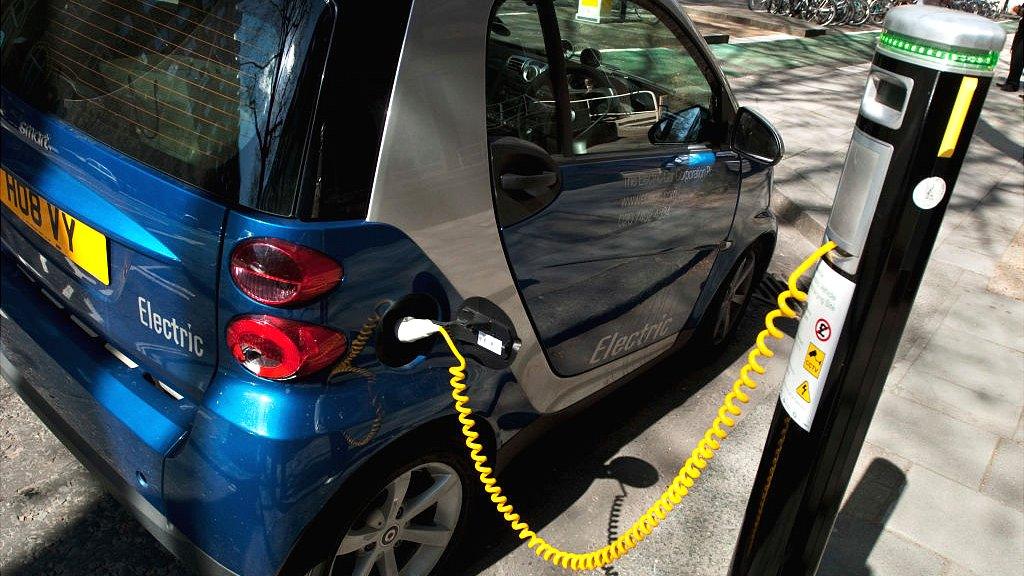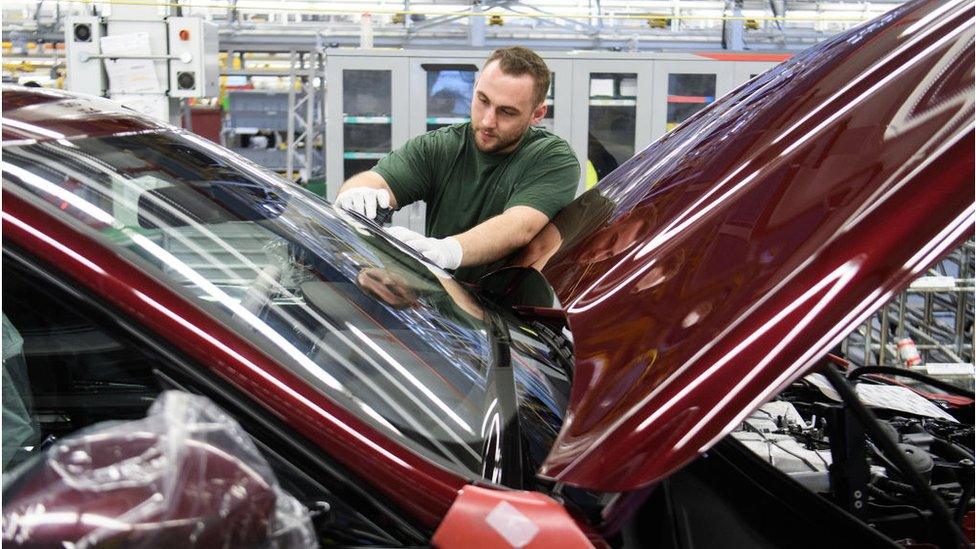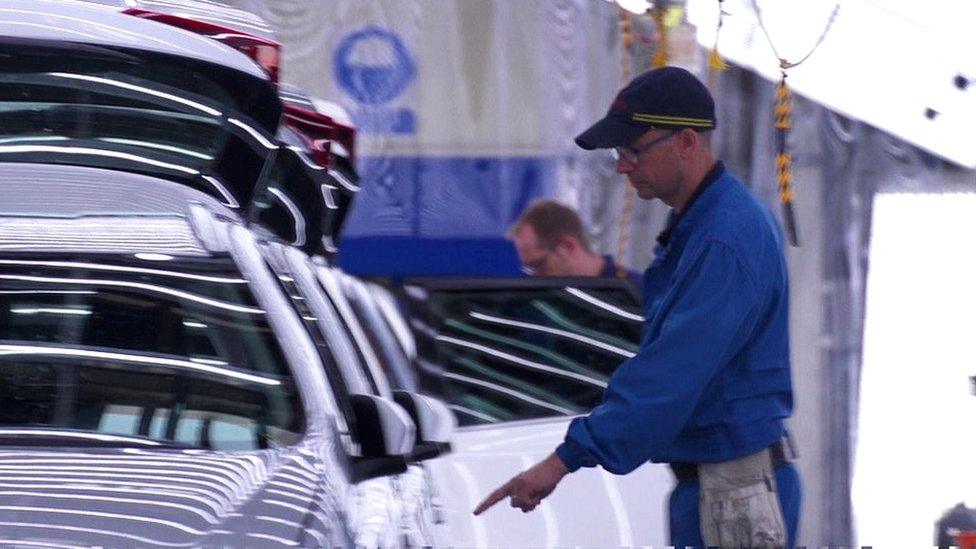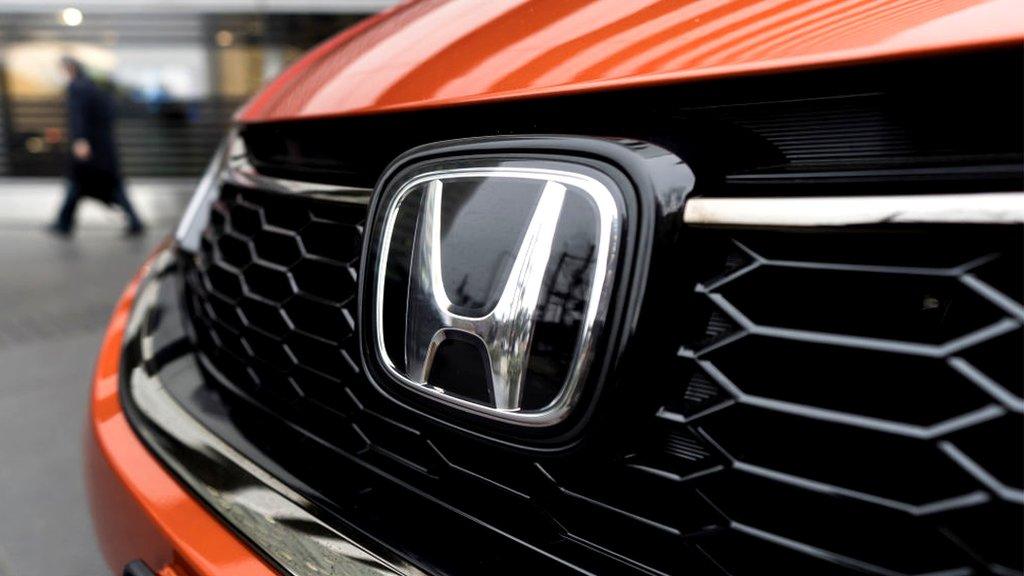Electric Mini production in Cowley to boost UK car industry
- Published
Mini launches its first all-electric car
BMW has given a boost to the UK car industry by confirming that the production of its new electric Mini will start in Cowley in November.
Deliveries of the brand's first fully electric car will start in March 2020.
Earlier this year, a BMW board member said the company would have to consider moving car production out of the UK if there was a no-deal Brexit.
But David George, head of Mini UK, told the BBC the UK was firmly in the company's plans going forward.
"It is too early to say what the impact of Brexit will be," he told the BBC. "But as a business, we have committed and invested heavily over recent years in our production facilities in the UK, so we remain committed to UK production.
"The team here at Plant Oxford are incredibly proud that it's been chosen to be the plant to launch the first all-electric Mini."
When asked if that meant the company would still be producing cars in the country in 10 years' time, he said: "It is impossible to see that far ahead.
"However, the UK is an important part of our capacity requirements for the future."
The new bit of the electric Mini - the drivetrain - will be produced in Dingolfing in Bavaria, before being brought to Cowley to be added into the car.
"We source components for the cars in multiple places," Mr George added. "We do our body pressings in Swindon, so we make the best of what we can from across different manufacturers. But we're delighted to be producing the car here in Oxford."
The news comes after announcements this year about Ford proposing to close its plant in Bridgend and Honda revealing plans to shut its plant in Swindon, with the loss of about 3,500 jobs.
BMW originally announced that Cowley would be the production base for the car in the summer of 2017.
Earlier that year, though, its chief executive had warned that the company needed to remain "flexible" about its production facilities because of Brexit uncertainty.
The state-of-the art automated Cowley plant has more than 1,000 robots on the assembly line and produces a car about once a minute.
Mini at 60: The car that became an icon

Analysis:
By Theo Leggett, BBC business correspondent
It was a fairly low-key launch for what could be a vital car for the Mini brand, driven through the Cowley factory before a handful of press.
Over the next few years, EVs are going to become a much more common sight on our roads. New emissions legislation means that from 2021, carmakers will not only have to build zero-emission cars - they'll have to sell them as well.
There's plenty of competition for the new Mini in the pipeline. Purpose-built electric cars, designed from a fresh sheet of paper.
The Mini isn't like that. It's a standard body shell, adapted to take the German-built electric drivetrain. After all, a Mini has to look like a Mini. And even though the brand is German-owned, it has to resonate British character.
The question then, is whether the company's engineers have managed to build a car that looks and feels like a Mini - but which can still take on the best other manufacturers can offer.

'Environmental challenges'
The Mini its celebrating its 60th anniversary this year. The new electric Mini is based on the same body shell as the current petrol model.
Unlike some other electric cars, the capacity of the boot is the same as in the petrol Minis - up to 731 litres when the rear backrests are folded down.
On a full charge, it has a minimum range of 124 miles and a maximum of 144 miles.
At present, the UK has a network of more than 24,000 public charging connectors in nearly 9,000 locations, according to figures from the Department for Transport.
Sorry, your browser cannot display this map
In a statement, BMW said the car was being launched "as the world faces new environmental, social and economic challenges".
It added that the car was "every inch a Mini, with performance close to the hot-hatch Mini Cooper S. It is temptingly priced and demand is expected to be strong".
Mr George added: "Mini has its own customer base. The new car is first and foremost a Mini with all the things that people love about the Mini - its iconic design and the performance and go-kart handling - but with all the benefits of electric.
"So that means zero emissions and low running costs."
BMW board member Oliver Zipse, previously the plant director at Cowley, said: "We are entering an era in which electric cars will become a normal choice for our customers.
"By 2023, two years ahead of schedule, we will have 25 electrified models on the market. More than half of them will be fully electric".
- Published9 July 2019

- Published7 June 2019

- Published5 March 2019

- Published22 February 2019
